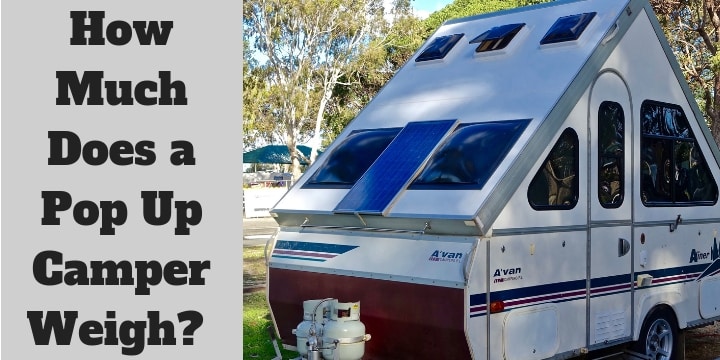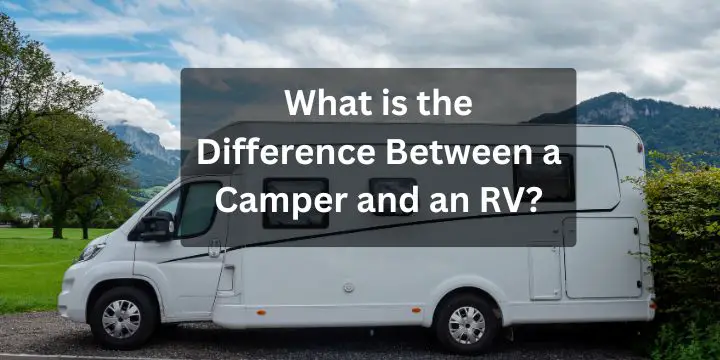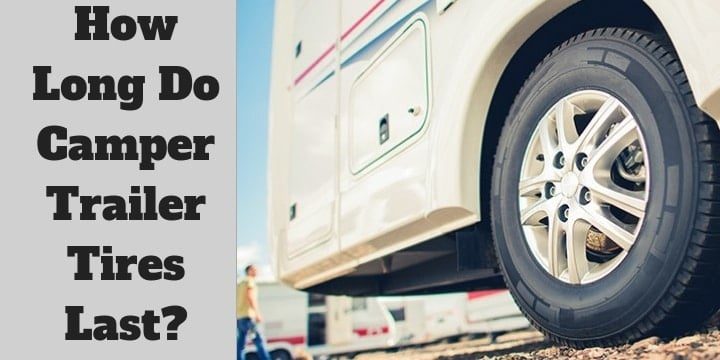How Much Does a Pop Up Camper Weigh?
Previously, if we wanted to camp, we had to carry a heavy backpack for the sake of the tent. Now you just need to drag the tent. This discovery is a Pop-Up Campers.
Like the name, this tool is simply pulled from unique folds in such a way as to form a large enough tent.
You will be quite surprised by the ease. Even the elderly can install their own tents with Pop-Up Campers. How Much Does a Pop Up Camper Weigh?
The pop-up weight can vary like each travel trailer or the fifth wheel considering its size and usefulness From the hard pop-up, similar to Aliner, can vary from 1,180 to 2,700 lbs. while the pop-up type of tent starts from 1,300 to 3,700 lbs.
Current pop-ups even offer extreme sports styles in the weight range of 1,722 to 3,377 lbs. Therefore they are given wheels and hooks so that they can join with cars.
Heavy Goods You Must Know If You Buy a Camper or Vehicle to Tow One
To find this, you need to know the GVWR and GCWR. The GVWR is the max amount of your vehicle can weigh, including passengers, all their stuff, plus the tongue weight of the trailer.
Whereas the GCWR is the total weight of the vehicle combination and its load which allowed according to the APM design
Can Your Current Vehicle Safely Pull Up the Pop-Up that You Bought?
Heavy pop-up weight makes you hesitate to use it. Do not worry. Choose a Pop-up camper that suits your needs but also fits your car. If you will only be alone, why do you bring a payload size 6 Pop Up Camper?
>> You may also like:45 RV Accessory Must-Haves for Your Travel Trailer<<
Do you need Trailer Breaks?
Trailer breaks are various, strength and specialization are also different. Choose one that suits your needs. Also, adjust the camper pop-up that you have.
Great Pop-up to Really Get Into Nature (Boondocking)
Boondocking is an RV camping practice without a utility connection, often to save money by staying in free campsites.
Going away without preparation is also the wrong thing. Make sure you bring enough of your needs such as clothes, drinks, food, toiletries and so on.
Being in nature also does not mean forgetting all available technology. Provide your own electrical energy sources such as solar power.
Remember that you also need electricity, and nature wants always healthy.
Tips for Fun and Safe Travel by Pulling your Pop up Camper
For those of you who are traveling, try occasionally to stop by the nearest market on the path that you passed.
While filling in your fuel, fill in your refrigerator. How can your refrigerator be empty while your petrol is full?
Check your car routine. Either the engine, gasoline, or tires. Make sure the car is always in prime condition.
Notice if there is a flat tire? It could be when driving accidentally your tires have stepped on a nail, which secretly deflated the tire.
Always carry the mechanic’s equipment such as tire pumps and English keys.
Have fun!
> You may also like:Worst 5th Wheel Brands to Avoid <<
Related Questions:
Smaller pop-up camper weight?
Small pop-up camper weighs between 500-800lbs. This makes them very light and easy to tow.
They have limited storage, but most contain the necessary amenities which include at least two sleeping areas and a kitchen area.
With small pop up campers, you’re not worried about your vehicle’s capabilities to tow the camper because it can be towed by your regular day to day vehicle.
While towing small pop-up campers, you can easily make turns and maneuvers on the road without stressing about the camper overturning.
Mid-sized and little larger pop-up camper weight
According to the recorded sales in America, mid-sized pop-up campers are the most purchased pop-up campers.
They have more space and amenities compared to small pop-up campers.
The more amenities in a mid-sized pop-up camper accounts for the more weight it has compared to small pop-up campers.
Mid-sized pop-up campers weigh around 800 to 1000 lbs which requires a vehicle with more horsepower to tow it.
Large pop-up campers weigh between 1000lbs up to 2000lbs. They contain a lot of amenities such as extra storage, a kitchen, a more sleeping area, and a living area. Large pop-up campers require an SUV, sedan, or truck for towing considering their weight.
Pros and cons of pop-up campers.
Pros of pop up campers
- Easily towed by your regular vehicle. Pop-up trailers are light and do not require a high-powered vehicle to tow them compared to trailers or 5th wheelers. This makes them great because you can tow them with your regular vehicle.
- Easy to store compared to trailers and RV’s. Pop up camps are foldable and required small space for storage unlike RVs and trailers which require very bug storage areas.
- Cheaper than RV’s. They are cheaper than RV’s which makes them efficient for people who can’t afford RV’s or trailers.
- Less fuel consumption compared to motorhomes or towing a 5th wheeler. Due to their weight, your car doesn’t use up a lot of gas towing them.
- Less cost of maintenance.
- One can easily customize it according to one’s needs and requirements unlike trailers or 5th wheelers which are expensive to customize.
Cons of pop-up trailers.
Less space. A pop-up camp has squeezed kitchens and fewer sleeping areas which are only comfortable for one or two campers.
Some don’t have essential amenities such as bathrooms and toilets which makes long travels or camping for long really uncomfortable and challenging.
Safety things to keep in mind when towing not so heavier pop up camper
Although pop-up campers are much smaller than trailers, one should always observe safety precautions when towing one.
One of the precautions is making sure the weight of the camper is less than the towing capacity of the vehicle towing it.
This makes it more comfortable during driving and keeps you safe.
Another precaution you should observe is equal weight distribution. This can be specially done by using
a special hitch that ensures proper weight distribution.
When buying a new pop-up camper, it’s better to buy one with a tow-haul mode which plays a crucial role in changing transmission and shift cycles heading downhill. This increases its safety.
> You may also like: Least-Visited National Parks: Why They’re Worth a Look<<
Most RV beginners learn this the hard way. Don’t.
🚐 Start RV Living the Right Way (Instant Download)Instant download • Secure checkout • Beginner-friendly



